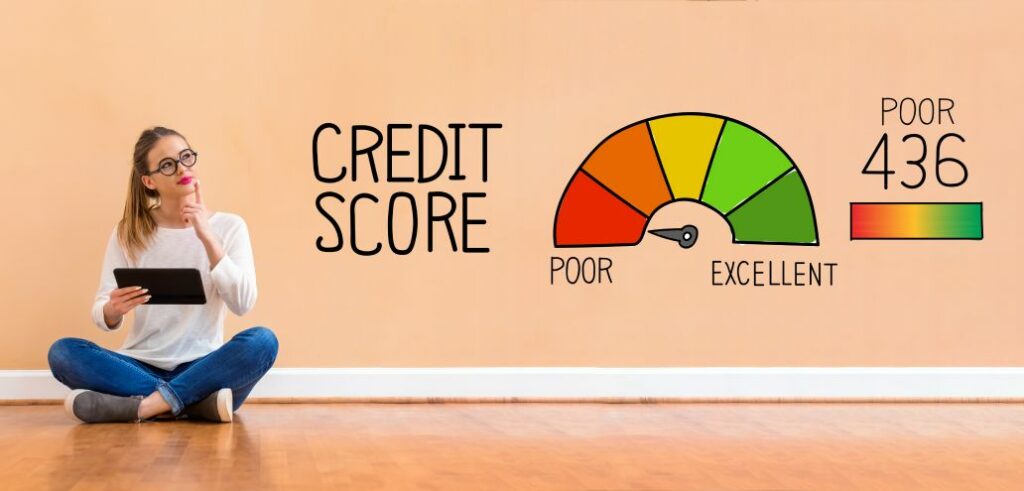Last Updated on February 23, 2024 by CREW Editorial
Navigating the mortgage maze becomes even more challenging when faced with a low credit score. However, a less-than-perfect credit history doesn’t have to lock you out of the housing market. Unlocking the doors to homeownership with bad credit is not only possible but also more achievable than you might think.
The Stigma of Bad Credit
Bad credit is often shrouded in negative perceptions that can unfairly label individuals as financially irresponsible or unreliable. These stereotypes can create a psychological barrier, making people feel as though they’re unworthy of homeownership. But it’s crucial to remember that credit scores can be affected by a variety of factors that are sometimes beyond one’s control.
For instance, unexpected life events like medical emergencies can lead to hefty bills that are difficult to pay off immediately, affecting your credit score. Similarly, job loss or reduced income can make it challenging to keep up with debt payments. Even a simple mistake like missing a credit card payment can have a lasting impact.
While a low credit score can pose challenges, it’s not an insurmountable obstacle. Financial setbacks are a part of life, and they don’t define your worth or your ability to own a home. The key is to view your credit score as a snapshot of your financial health at a specific moment in time, not as a permanent mark on your character. With the right strategies and support, improving your credit score and achieving homeownership are well within reach.

The Role of Mortgage Brokers
Mortgage brokers are often the unsung heroes in the journey to homeownership, especially for those grappling with low credit scores. Acting as a bridge between you and a multitude of lenders, these professionals bring expertise and options to the table that you might not discover on your own.
What sets mortgage brokers apart is their extensive network of contacts in the financial industry. They can sift through a variety of mortgage products to find one that aligns with your financial situation, even if your credit score is less than ideal. This tailored approach can save you time, effort, and potentially thousands of dollars in interest over the life of your mortgage.
Alternative Financial Products
If your credit score is holding you back from securing a traditional mortgage, Canada’s diverse financial landscape offers several alternative pathways to homeownership. These non-traditional mortgage products are designed to accommodate a range of financial situations, including those impacted by bad credit.
High-Ratio Mortgages: Ideal for those who may not have a large down payment saved up, high-ratio mortgages allow you to enter the housing market with as little as 5% down. However, it’s worth noting that these mortgages often come with higher interest rates, and you’ll also need to purchase mortgage insurance, which can add to your monthly payments.
Private Mortgages: If traditional lending avenues are closed to you, private mortgages offer another option. These loans are offered by individual investors or private lending companies rather than traditional financial institutions. While they offer more flexible approval criteria, they often come with higher interest rates and may include additional fees.
Each of these options has its own set of pros and cons, and it’s crucial to weigh these carefully. For example, while a high-ratio mortgage might offer a quicker entry into the housing market, the long-term costs could be higher due to elevated interest rates. On the other hand, private mortgages offer flexibility but may come with their own set of risks and costs.

Leveraging Other Assets or Co-Signers
If a low credit score limits your mortgage options, consider using other assets like investments or property as collateral. Be aware that you could lose these assets if you default on the loan. Another option is a co-signer, someone with a better credit score who agrees to share the mortgage responsibility. This can boost your chances of loan approval but involves shared financial risk. Consult a financial advisor to understand the implications of both strategies fully.
Actionable Tips
Boost Your Credit Score: Even a small improvement in your credit score can make a significant difference in your mortgage terms. Pay off outstanding debts and ensure timely payments to gradually lift your score.
Increase Your Down Payment: A larger down payment can counterbalance a low credit score, making you a less risky borrower in the eyes of lenders.
Utilize Canadian Homebuyer Incentives: Take advantage of programs like the First-Time Home Buyer Incentive or the Home Buyers’ Plan to make your path to homeownership more accessible.
Conclusion
The journey to homeownership may appear daunting when faced with a low credit score, but rest assured, it’s a challenge that can be conquered. Armed with the right information, support, and financial strategies, you can turn what seems like an obstacle into a stepping stone toward your dream home. So, don’t lose heart; your keys to a new home could be just a few smart decisions away.









